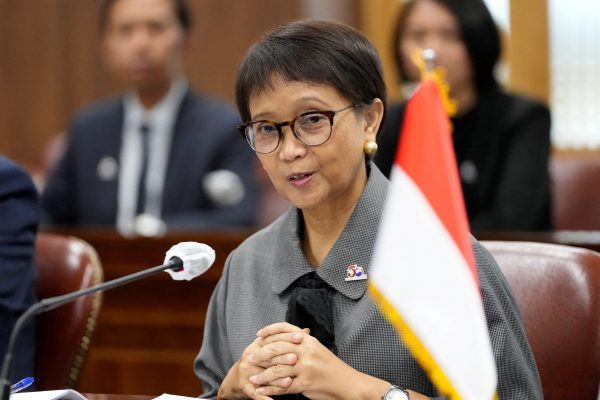The long-awaited elections will also be critical in the fight for women’s political issues. During the last election in 2019, the number of women elected to national parliament reached 20.9 per cent. This is the highest proportion of female legislators elected in Indonesia since its New Order era.
This breakthrough appears to be the payoff from women’s activists’ struggle to make the 30 per cent female candidate quota mandatory. It was followed by the implementation of the ‘zipper system’ — which aims to avoid placing female candidates at the bottom of the electoral list, where voters tend to overlook them. Though progress is happening gradually, these affirmative action policies appear to be pushing the fight to promote women’s representation.
Yet questions remains about women’s substantive representation. Despite efforts to increase demand for nominating female candidates within parties, existing affirmative policies have yet to address structural barriers to women’s participation in politics.
The most prominent barrier is that women generally have limited access to financial resources and clientelist networks. This leads to their inability to fund or raise funds for campaigning. One study demonstrates that candidates must prepare between Rp 250 million to Rp 1 billion (US$16,941–67,766) to run in legislative elections.
Further, reluctance to affirm female political leadership is still apparent, both in the public and the home, since women are not perceived as ‘natural leaders’ in some cultural contexts and religious beliefs.
These unaddressed barriers to breaking the political glass ceiling significantly hinder the vast majority of women from winning political races. Female candidates who have higher chances of being elected are those with ties to political dynasties.
In the 2019 election, some women won seats by mobilising female-focused networks to gain votes — candidates won by targeting a small group of voters under the open-list proportional system. But these women may only be able to do so because of their connections to powerful male political leaders.
Female legislators elected in 2019 were more likely than their male counterparts to have family connections with party leaders or political officeholders — 44 per cent versus 8.5 per cent. This suggests dynastic backgrounds may play a more important role in the success of female candidates than male candidates in legislative elections. More than half those female legislators belong to the Nasdem Party.
The issue with such trends revolves further around what it means to be ‘represented’ as a community. How well will these women represent broader women in Indonesia, particularly those who belong to lower socioeconomic classes and lack political kinships?
The Protection of Domestic Workers Bill is a prime example of the lack of promotion of women’s issues in lawmaking. Most domestic workers in Indonesia are poor women with working conditions that make them vulnerable to abuse. Despite over 1400 reported cases of abuse in just three years, this bill has not made it out of legislative limbo for almost two decades. This situation emphasises the critical need for substantive female representation to achieve female-focussed political goals.
There are no quick fixes for this challenge. It needs a multifaceted approach that addresses underlying barriers associated with gender inequality and discrimination, while promoting women’s participation and leadership in all aspects of society. But policies can build on the existing practice of supporting community champions to win seats.
The Indigenous Peoples’ Alliance of the Archipelago (AMAN) provides a precedent for success in forming strategic partnerships with political parties. This paves the way for AMAN members to run in elections. Members are registered as candidates through party platforms, allowing them to access the infrastructure and resources provided by political parties. Once elected, these members are expected to promote AMAN’s policy agenda. Around 180 candidates for regional and national parliaments were fielded under this partnership.
The main barrier to women’s substantive representation is lack of access. Similar partnerships to AMAN managed by political parties and non-government organisations that focus on gender issues can support legislative candidates who have a background as women’s champions. Such partnerships will allow candidates who understand community issues to access more resources to win seats. These candidates can present themselves as female party members who have already obtained community support — meaning a higher chance of winning more votes, which is advantageous when running for office.
This strategic partnership, when combined with gender quotas and the zipper system, can build a comprehensive approach to achieving women’s political goals through lawmaking. Increasing women’s substantive representation in Indonesia requires a sustained effort involving multiple stakeholders — including the government, political parties and civil society.
Hening Wikan is Junior Researcher at the SMERU Research Institute.
Dias Prasongko is Researcher in the Research Centre for Politics and Government at Universitas Gadjah Mada.

